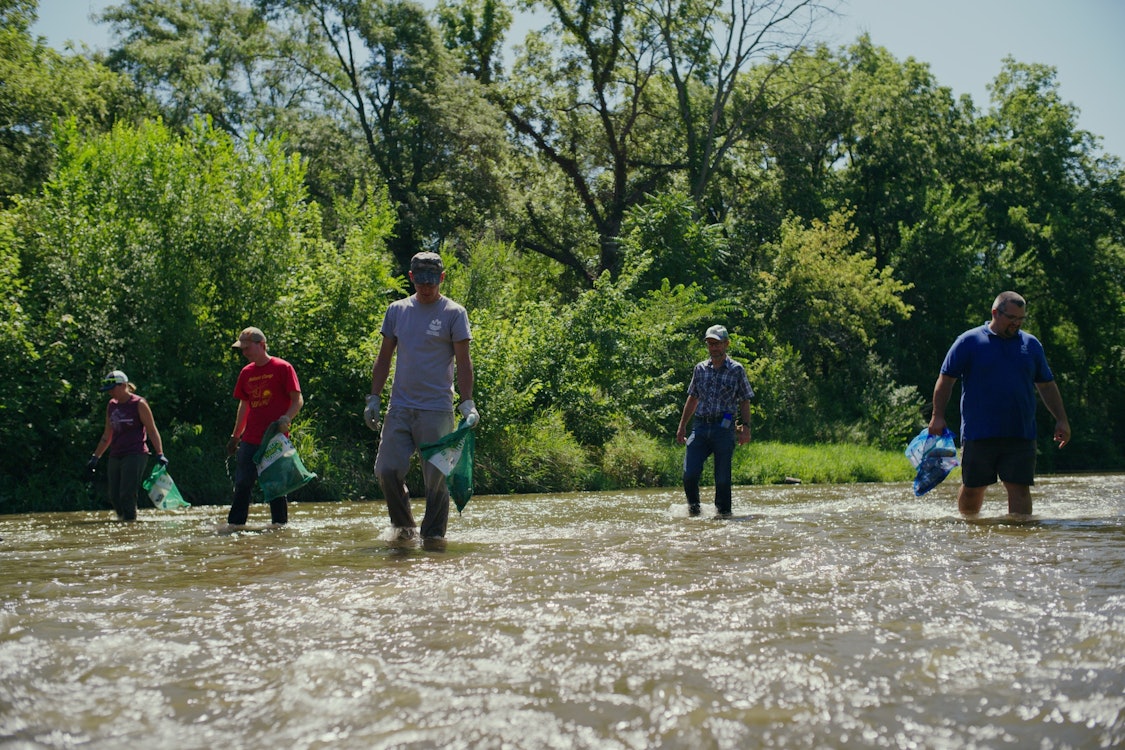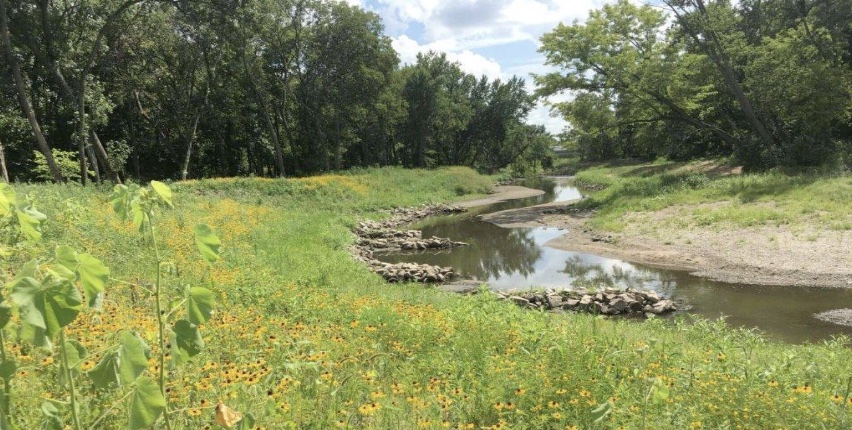Please post a comment or send me an e-mail (desmoinesdem AT yahoo.com) if you know of some event I’ve left out.
Friday, January 30:
Congressman Bruce Braley is holding a town hall meeting on the economic stimulus at 10:00 am at the Grand River Center (meeting rooms 2 and 3), 500 Bell Street in Dubuque. Braley’s town hall meetings on the economy are free and open to the public. Attendees are encouraged to RSVP at http://braley.house.gov.
From Polk County Democrats:
The Ankeny Area Democrats and The Polk County Democrats Present An Inauguration Celebration Dinner At The Iowa State Historical Building
with special guest Congressman Leonard Boswell and State Affirmative Action Chair Shenica Graham will sing a tribute song she wrote for President Obama, “I Believe.”
Special presentation of appreciation for 2008 candidates: Nita Garvin, Dr. Alan Koslow, Matt Pfaltzgraf, John Scarpino, Richard Sosalla, Jerry Sullivan
Friday, January 30, 2009
Catered by Baratta’s Restaurant
Social Hour begins at 6:00 PM
Dinner at 7:00 PM
Live music through the Musician’s Union
Tickets $25 per person
Tickets include chicken / pasta dinner and sides, soft drinks, coffee, iced tea or water
Semi-formal attire encouraged, but not required
Please bring a food item for the Des Moines Area Religious Council to be distributed to the local food pantries.
Tickets available by calling Tamyra at 515-285-1800 or Mary Oliver at 515-964-1227
Email polkdems@gmail.com or Ankenyareadems@msn.com
Saturday, January 31:
From Iowa Rivers Revival:
IRR is developing a River Stewards Program to address concerns about the public’s general disconnect from rivers. We have conducted a couple of brainstorming sessions in recent months and have envisioned River Rascals, a river steward program that will offer opportunities for youth to learn more about the importance of rivers and problems associated with them. We want to engage educators and anyone interested to help develop and implement a program for youth that focuses on river appreciation, recreation and stewardship. We invite you to the upcoming planning session to help make the vision a reality!
River Rascal Program Planning Session
Saturday, January 31, 2009, 10 a.m. to 2 p.m.
Polk County Conservation Board’s Jester Park Lodge, 11407 NW Jester Park Drive, Granger, IA
Agenda: Provide ideas and feedback on draft program details, including curriculum, educators/presenters/partners/mentors, potential participants, venue options, and funding options
No cost (pizza and beverages will be brought in – small cash contribution welcome)
RSVP: rlehman@iowarivers.org or 515-202-7720
Tuesday, February 3:
Ed Fallon will discuss civil marriage for gay and lesbian couples on Jan Mickelson’s radio show. Mickelson is a local Rush Limbaugh clone, and I’M for Iowa is encouraging supporters of marriage equality to listen and call in. The show runs from 9:00 – 11:30 a.m. on WHO Radio (1040 AM), and you can participate by calling (515) 284-1040.
One Iowa is organizing a forum on marriage equality at 7:00 pm in the Veteran’s Memorial Building, 834 Broad St. in Grinnell.
Wednesday, February 4:
From Iowa Rivers Revival:
Iowa Rivers Revival invites you to join us for a legislative reception to engage Iowa legislators about the importance of our rivers and how they provide many economic, environmental and recreational resources for our state. Come and share your river experiences. […]
Our first reception held in January 2008 was a great success – over 50 supporters, including bi-partisan representation from at least 15 Iowa legislators, attended the last-minute event. This reception provides an opportunity for Iowa’s political leaders to recognize that rivers have representation and an increasing base of support advocating on their behalf. The purpose of this reception is to raise awareness and to continue having conversations about the issues concerning Iowa’s rivers and our connections to rivers.
Wednesday, February 4, 2009
Noodle Zoo Café
E 6th & Locust, Des Moines
4:30 – 6:30 PM
No cost
RSVP: rlehman@iowarivers.org
From the Iowa Environmental Council:
The Iowa Recycling Association is sponsoring an Educators Conference on February 4, from 9:00am to 3:00pm, at Plymouth Church, 4126 Ingersoll Ave., Des Moines. Topics and Speakers include “Green Streets”: Jeff Geerts, Iowa Department of Economic Development; “Marketing Programs on a Budget”: Mark Signs, Trees Forever; “Character Counts”: Eric Martin, Character Counts; “Partnerships for Effective Education”: Mary Gillespey, Darven Kendell, Bev Wagner. Pre-registration is required. Registration fee is $30 before January 1, 2009 and $40 after January 1. A waste free lunch will be provided. Register online at http://www.iowarecycles.org/co… and send payment to: Iowa Recycling Association, PO Box 10954, Cedar Rapids, IA 52410. For more information contact: Bev Wagner, beverly.wagner@loras.edu or 563-588-7933.
Friday, February 6:
The Iowa Network for Community Agriculture is holding its 14th Annual Local Food Conference on February 6-7 in Clear Lake. The conference is an opportunity to connect the local food “dots” in North Iowa, expand your local food knowledge with dynamic workshops, and celebrate the capacity to sustain ourselves and our communities. Come meet and eat with other local food enthusiasts. Full conference information at http://www.growinca.org.
There will also be a “slow food fundraiser” for INCA in the evening:
SLOW FOOD FUNDRAISER FOR INCA
FRIDAY, FEB. 6, STARTS at 5:30pm
LAKE COFFEE HOUSE – HWY. 122 (old hwy. 18), CLEAR LAKE, IA (next to Subway – please call if you need directions)
COST: $20
INCLUDES:
Two wine tastings
Fabulous Iowa-produced appetizers
Great Iowa-produced (and locally-made) soup
and… a Fabulous Iowa chef, author and Slow Food Extraordinaire – Chef Kurt Michael Friese
Additional tickets available at event:
Ticket for one glass of wine – $5
Ticket for 3 extra tastings – $5
Event begins at 5:30 with wine and appetizers.
At 6:30 we’ll hear more from our special guest, Kurt Michael Friese, who will share with us his journeys as chef and owner of local food restaurant icon, Devotay, in Iowa City. Kurt will also read from his new book with us, A Cook’s Journey – Slow Food in the Heartland, published last August. Kurt serves on the Board of Directors for Slow Food USA. We are excited to have Kurt join us for this weekend event.
To get tickets and information for Friday’s fundraiser, please contact:
Lisa Stokke
641-529-0445
slowfoodlisa@gmail.com
Send check made out to “SLOW FOOD CLEAR LAKE” to:
Lisa Stokke 909 2nd Ave. S., Clear Lake, Iowa 50428
From the Iowa Environmental Council:
Savanna Workshops for Teachers and Naturalists
Join us for the workshop: Iowa’s Roadside Native Communities: Savanna, on Feb. 6-8, 2009 and Apr.24-25, 2009 at Baymont Inn, Coralville, IA. Learn how to help your students explore and improve Iowa Prairies/Savanna. For primary through Community College teachers and naturalists. Participants receive 2 UNI graduate credits, materials, meals and housing for only $180 due to grants. For more information please visit http://www.uni.edu/ceee/eii. Request a paper brochure at bollwinkel@uni.edu, or call 319-273-2783.
Continue Reading...


